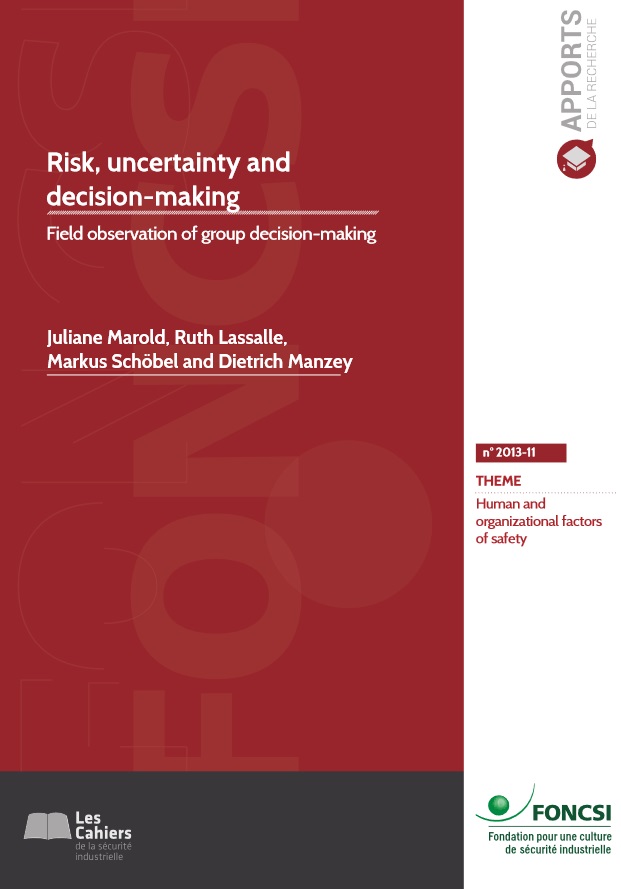
Risk, uncertainty and decision-making: field observation
This work is based on observations of a specific kind of health care meeting where treatment options for cancer patients are discussed, as well as on questionnaires completed by the participating physicians. The researchers have analyzed the strategies used by people to cope with uncertainty, including the order in which these strategies are used. They have analyzed characteristics of decisions where the decision-making process was judged by the experts involved to be “good” or “acceptable”.
The work identifies a new source of uncertainty not found in previousn studies: divergent opinions held by decision-makers in the group.A strong hierarchy gradient in play during the meetings is perceived by group members as contributing to poor decision-making performance.
The authors suggest a number of techniques which could be used to improve decision-making performance,including the use of formalized decision-support procedures to more clearly distinguish phases of presenting information and evaluating it,and to encourage information exchange between group members. Group leaders could be trained in coaching behaviour in order to improve psychological safety, and other members could be trained to encourage speak-up behaviour (assertiveness).
Published under Creative Commons licence. See conditions for reproduction.
 Risk, uncertainty and decision-making: field observation
Risk, uncertainty and decision-making: field observation
